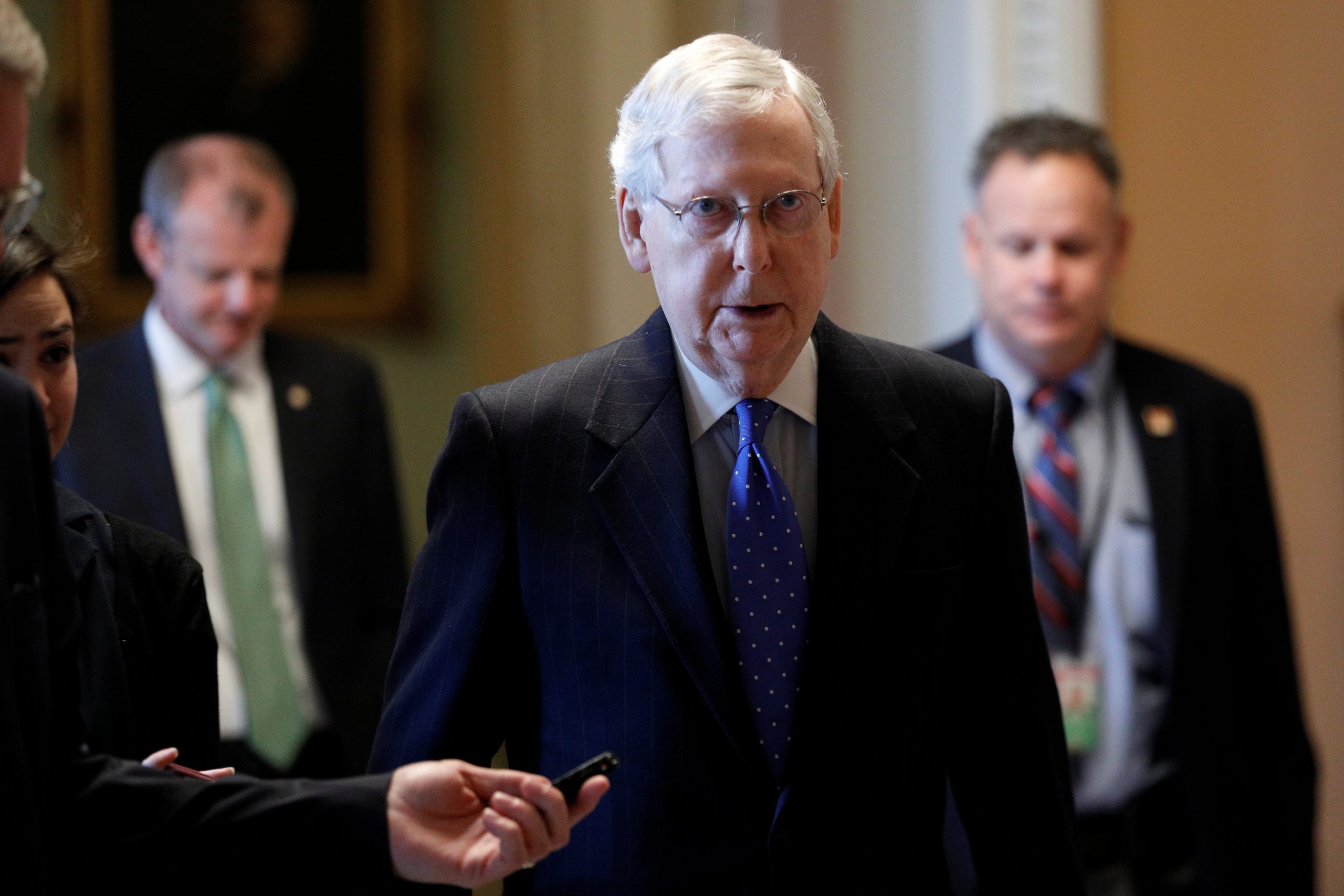With coronavirus cases reported in all 50 U.S. states, lawmakers in Washington are working to limit the economic damage from the epidemic. To do so, they must overcome another problem – partisan gridlock.
The Republican-controlled Senate is due to take up a multi-billion dollar aid package on Wednesday that bolsters safety-net programs and provides free testing for the respiratory disease.
The Democratic-controlled House of Representatives passed the package by an overwhelming bipartisan margin on Saturday.
Senate Republican Leader Mitch McConnell is urging his colleagues to approve it quickly, despite their qualms.
“Gag and vote for it,” he said at a news conference on Tuesday.
That may be difficult for some Senate Republicans, who worry that its sick-leave provisions could heap costs on small businesses. Others have objected that it does not cover those who work at corporations that employ more than 500 people.
“I’m pretty concerned with the House bill making a bad situation worse in our economy,” Republican Senator James Lankford said on Tuesday.
Still, the Senate is expected to approve the bill this week and immediately turn to a third effort, after U.S. Treasury Secretary Steven Mnuchin privately warned that unemployment could hit 20% if Congress does not act.
The third package could include popular items, like $1,000 checks to Americans, and less popular items, such as an expensive bailout for airlines that risk falling into bankruptcy.
It was unclear when that would pass or how soon Americans would get the money, but Trump took to Twitter early Wednesday morning to push the effort.
“For the people that are now out of work because of the important and necessary containment policies, for instance the shutting down of hotels, bars and restaurants, money will soon be coming to you,” Trump wrote.
Mindful of the backlash to the 2008 bank rescue package, Republicans working on the third effort say it does not amount to a bailout of the industry.
“Chairman Shelby opposes bailouts,” said Blair Taylor, a spokeswoman for Republican Senator Richard Shelby, who is working on the effort.
Disputes over taxes and spending have repeatedly brought Washington to a standstill over the past decade, but lawmakers so far have overcome their partisan divisions to confront the crisis.
Congress quickly approved an initial $8.3 billion package to boost the medical response to the pandemic, and the House-passed bill enjoyed broad support from both Republicans and Democrats.
Sick-leave and family-leave provisions alone in the House-passed legislation would cost $105 billion, according to the Joint Committee on Taxation.
The third effort could dwarf that figure. Mnuchin said it could cost $1.3 trillion – surpassing the $838 billion Recovery Act of 2009, which passed Congress with only a handful of Republican votes.
Conservatives like Republican Senator Tom Cotton are calling for the third package to include expanded safety-net benefits.
Senate Democratic Leader Chuck Schumer, meanwhile, has proposed spending $750 billion on further safety-net enhancements, such as emergency child care for health workers, and House Speaker Nancy Pelosi said on Tuesday that the third package should include benefits for self-employed workers.
Lawmakers from both parties also have lined up against Trump’s proposed payroll tax cut on the grounds that it would take too long to make a difference and would not help those who lose their jobs.
(Reporting by Andy Sullivan and David Morgan; Additional reporting by Richard Cowan and Susan Heavey; Editing by Christopher Cushing and Angus MacSwan)

























 Continue with Google
Continue with Google